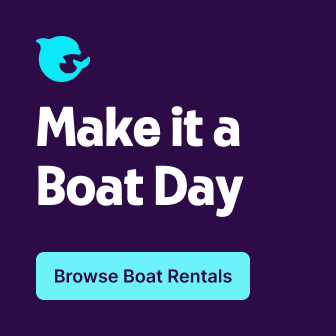Becoming a boat captain in the United States can be a rewarding career choice, especially for those who love the sea and have a passion for boating. The journey to becoming a boat captain involves several steps, including obtaining the necessary education, gaining experience, and obtaining a license. In this comprehensive guide, we will walk you through each step of the process.
Step 1: Understand the Requirements
Before you start your journey to becoming a boat captain, it's crucial to understand the requirements. These can vary depending on the type of boat you wish to captain and the waters you plan to navigate.
Here are some general requirements you should be aware of:
- Age: You must be at least 18 years old to become a boat captain in the US.
- Citizenship: You must be a US citizen or have legal status to work in the US.
- Physical Fitness: You must be in good physical condition, as the job can be physically demanding.
- Vision: Good vision is required, with or without corrective lenses.
- Experience: You must have a certain amount of boating experience, which varies depending on the type of license you are seeking.
Step 2: Gain Boating Experience
Experience is a crucial part of becoming a boat captain. You need to spend a significant amount of time on the water to gain the necessary skills and knowledge.
Here are some ways to gain boating experience:
- Private Boating: Owning a boat and regularly taking it out on the water is one of the best ways to gain experience.
- Boat Rentals: If you don't own a boat, consider renting one from a reputable company like Getmyboat. This can provide you with valuable hands-on experience.
- Boat Charters: Working on a boat charter can also provide you with the necessary experience. Again, consider checking out Getmyboat for opportunities.
- Boating Courses: Taking boating courses can also help you gain experience and knowledge. These courses often include practical components where you get to operate a boat.
Step 3: Obtain the Necessary Education
While experience is crucial, education is also an important part of becoming a boat captain. There are several boating courses and certifications available that can provide you with the necessary knowledge and skills.
Here are some educational options to consider:
- Boating Safety Courses: These courses cover the basics of boating safety and are often required to rent a boat or obtain a boating license.
- Navigation Courses: These courses cover topics like reading charts, using a compass, and understanding tides and currents.
- Maritime Schools: Some people choose to attend a maritime school to obtain a degree in a field like marine transportation or marine engineering.
Step 4: Obtain a License
Once you have gained the necessary experience and education, the next step is to obtain a boat captain's license. The type of license you need will depend on the type of boat you wish to captain and the waters you plan to navigate.
Here are the main types of licenses:
- Operator of Uninspected Passenger Vessels (OUPV) License: This license allows you to operate boats that carry up to six passengers.
- Master License: This license allows you to operate inspected vessels that can carry more than six passengers.
- Towing Endorsement: This endorsement allows you to assist disabled vessels.
- Sailing Endorsement: This endorsement allows you to operate sailing vessels.
Obtaining a license involves passing a written exam and a physical exam, and providing proof of your boating experience. You may also need to pass a drug test and a background check.
Step 5: Continue Learning and Gaining Experience
Even after you become a boat captain, it's important to continue learning and gaining experience. This can help you become a better captain and open up more opportunities.
Here are some ways to continue learning and gaining experience:
- Advanced Courses: Consider taking advanced boating courses to expand your knowledge and skills.
- Professional Associations: Joining a professional association can provide you with networking opportunities and access to continuing education resources.
- Work Experience: Try to gain experience in different types of boating jobs to broaden your skills and knowledge.
Becoming a boat captain is a journey that requires dedication, hard work, and a love for the sea. But with the right approach and resources, you can turn your dream of capturing the helm into a reality. Good luck on your journey!
Set Sail with Getmyboat
Ready to apply your newfound knowledge as a boat captain? Make it a boat day with Getmyboat, the #1 app for boat rentals and charters. Whether you're looking to captain your own adventure or provide captained experiences for others, Getmyboat connects you with 150,000 boats worldwide. Book your next nautical adventure or list your services and start making waves today!















